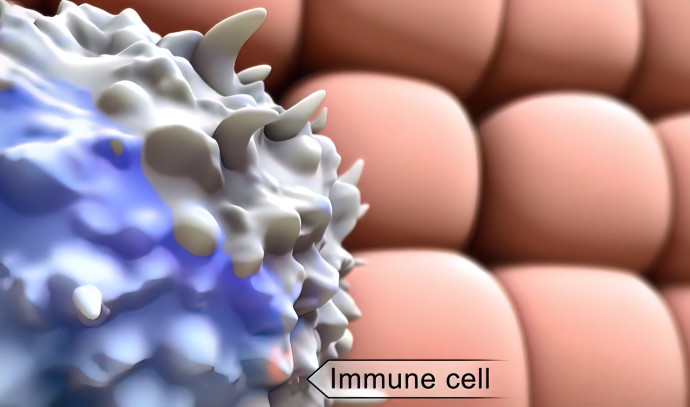The intestine is a very dynamic organ that is constantly changing structurally, mechanically and chemically, and the intestinal bacteria are required to cope with this dynamism. One of the features that may help them in this is flexibility (plasticity) – the ability to undergo rapid genomic changes in response to changes in environmental conditions. The researchers of the Faculty of Medicine analyzed samples from patients with inflammatory bowel diseases and discovered that in conditions of intestinal inflammation, such as colitis and Crohn’s, a change in genes occurs in the bacteria that causes segments in the hereditary DNA material to be reversed. These reversals affect gene expression and cause bacteria to “turn off” or “turn on” the production of various molecules and proteins.
The research was directed by Prof. Naama Geva-Zatorski. The leaders of the research were the doctoral students Shaked Kerso, Rowan Zaatara and Yeytam Hajo. Lab graduate Dana Kadosh-Kriti also led the research, and the research fellow was Dr. Tal Gefen, as well as Technion graduate Dr. Itay Sharon from the Miguel Institute, Prof. Yehuda Hovars and Dr. Sigal Pressman from the Rambam Medical College, along with researchers in the United States and Spain.
Later in the study, the researchers focused on one of the common bacteria in the intestine, Bacteroides fragilis. This bacterium covers itself with a layer of certain polysaccharide molecules called Polysaccharide A (PSA), which can activate Tregs – regulatory T cells of the immune system that suppress an increased immune response and thus may affect the reduction of inflammation.
Reversing DNA in this bacterium can change the type of polysaccharide molecules that cover the bacterium. The researchers found that in an inflammatory state in the intestine, a DNA reversal occurs in the bacterium Bacteroides fragilis, which “turns off” the production of the polysaccharide molecules that have a dampening effect on the immune system.
In addition, the researchers found a connection between the DNA inversions in these bacteria and bacterial viruses in the intestines. These viruses, called bacteriophages, are known to infect and kill bacteria. In the current study, the researchers found that these viruses can change the behavior of the bacteria and change their effect on the immune system. The researchers found that the bacteriophages cause the bacteria to “turn off” the production of PSA molecules, which affects the Treg cells of the immune system. The researchers confirmed the phenomenon both in patients and in model mice.
“Following analysis of findings we collected from more than 2,000 sick and healthy people, we understand that in intestinal diseases such as colitis and Crohn’s, the bacteria change the way they activate or suppress the immune system,” explains Prof. Geva-Zatorski.
“Our explanation is that the same flexibility in the genes of the bacteria that developed during evolution provides the bacteria with flexibility, and thus helps them adapt to the intestinal disease. Understanding the role of the bacteria in the development of intestinal inflammations and their severity may promote innovative treatments targeting these bacteria. This study is an opening for future studies examining the activity of The bacteria depending on the conditions of their living environment in the human body and the consequences for our health,” she added.
